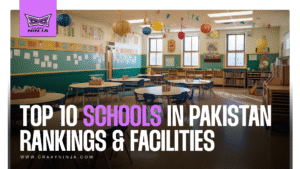Choosing the right school is one of the most important decisions for any parent; it shapes a child’s future and opportunities. In Pakistan, the education landscape is vast and diverse.
From international schools offering global curricula to local institutions excelling in academics and co-curriculars, parents today have a wide range of choices. In fact, as of 2019, nearly one-third of all primary school–age students were enrolled in private schools, showing just how high the demand for quality education has become.
This article profiles the Top 10 schools in Pakistan, each setting a benchmark in quality education and student development.
1. Roots International Schools & Colleges (RISC)

One of the top schools in Pakistan, RISC is recognized as Pakistan’s first ISO 9001:2021 certified school. The institution is part of the broader Roots network established in the late 1980s. Today, RISC operates more than 35 campuses in Islamabad, Rawalpindi, Karachi, Lahore, Peshawar, Wah Cantt, Gujranwala, Sialkot, and Muzaffarabad, serving thousands of students from early years to higher education.
At the helm of the institution is Walid Mushtaq, CEO of Roots International Schools & Colleges, who also serves as Rector of Metropolitan International United College (MIUC). His leadership emphasizes academic innovation, global partnerships, and a focus on student development.
Academic Programs
RISC offers a wide variety of academic pathways, making it accessible to students pursuing both national and international qualifications. This breadth ensures flexibility for students aiming for local universities or pursuing international admissions.
- Early Years & Montessori (Ages 2–5): Programs such as the Roots International Montessori Programme (RIMP) and IB Primary Years Programme (IB PYP) set the foundation for inquiry-based learning.
- Primary (Ages 5–11): The Roots International Primary Programme (RIPP) and IB PYP continue with structured learning in English, Mathematics, Science, and Social Studies.
- Lower Secondary (Ages 11–14): The Roots Lower Secondary Programme (RLSP) includes subjects such as English, Mathematics, Science, ICT, and languages.
- Secondary (Ages 14–16): Students can choose Cambridge IGCSE, O-Levels, or Matriculation under the local board.
- Higher Secondary (Ages 16–18): RISC offers multiple options, including A-Levels (with more than 55 subject choices), the University of London International Foundation Programme (IFP), and local board qualifications such as F.Sc, ICS, I.Com, and F.A.
Campuses and Reach
RISC has established a strong nationwide presence. Some notable campuses include:
- Islamabad: Wellington Campus (IB World School), Richmond Campus (DHA II), Winchester Campus, Bloomsbury Campus (F-10), Liverpool Campus, and others.
- Rawalpindi: Claremont and Stirling campuses in Westridge, Gulzar-e-Quaid campuses, and Rawal Campus in Satellite Town.
- Lahore: Canal Campus (Model Town), Seven Oaks Campus (IB PYP Candidate School), Askari XI Campus.
- Other Cities: Palm Tree Campus (Sialkot), Gandhara Campus (Wah Cantt), River View Campus (Muzaffarabad), and Master City Campus (Gujranwala).
Global Partnerships and Innovation
RISC emphasizes international collaboration. It has special partnerships with institutions such as the University of London, offering pathways like the International Foundation Programme (IFP). The school is also part of the Goethe-Institut PASCH network, which offers German language and cultural immersion programs.
On the technology side, RISC integrates STEM education and digital tools. Its Learning Management System (LMS) connects faculty, students, and administrators, while all students and teachers are given access to Microsoft Office 365. This digital readiness supports both classroom learning and remote education.
Scholarships and Achievements
Students from RISC have secured scholarships from international universities. The amounts reported in the school’s profile range from USD 30,000 to over USD 600,000 per student, depending on the institution and program of study. These figures reflect opportunities available to graduates who apply abroad.
Extracurricular and Community Life
Alongside academics, RISC offers a wide range of extracurricular opportunities, including debating societies, Model United Nations (MUNs), science and technology clubs, and cultural events. The school’s ethos, as emphasized in its official profile, is to “develop innovative, compassionate, and responsible citizens of the world.”
RISC regularly hosts and participates in conferences, youth festivals, and academic competitions, exposing students to national and international networks.
Alumni and Mentorship
While the school does not publish extensive alumni testimonials, its graduates are described as beneficiaries of mentorship from professionals in diverse fields. Alumni placements at global universities, coupled with high scholarship awards, reflect the impact of this mentorship.
Pros
- Variety of Programs: RISC offers both national and international pathways, giving students flexibility in choosing their future direction.
- Wide Campus Network: With more than 35 campuses, the school is accessible to families in several cities.
- International Partnerships: Collaborations with the University of London and Goethe-Institut PASCH provide students with global exposure.
- Scholarship Opportunities: Many students secure significant scholarships to international universities.
Cons
- Rigorous Academic Environment: The demanding curriculum may feel intense for some students, yet it ensures strong preparation for both local and international universities.
- Highly Competitive Admissions: With a strong reputation and demand, securing admission can be challenging, which also speaks to the school’s popularity and credibility.
FAQs Related to RISC
Do RISC students get into international universities?
Yes, graduates from RISC have secured admissions to universities in the UK, USA, Canada, and other countries. Many have also received substantial scholarships, which are listed in the school’s official reports.
Is RISC only for students who want to go abroad?
No. While many students do pursue international higher education, RISC also offers national qualifications (SSC and HSSC) for those aiming to study within Pakistan. This flexibility allows families to choose based on long-term goals.
What are the fees of Roots School?
The fee structure at Roots International Schools and Colleges (RISC) depends on the program and campus. International pathways such as Cambridge O/A Levels, IB, or the University of London IFP usually have higher tuition compared to SSC and HSSC. Parents are advised to contact their nearest campus for the most up-to-date fee information.
Which are the top 5 schools in Pakistan?
While rankings can vary, many parents and education experts frequently list Roots International Schools and Colleges (RISC), Aitchison College, Beaconhouse School System, Karachi Grammar School, and The City School among the top schools in Pakistan.
Who is the CEO of Roots Islamabad?
The CEO of Roots International Schools and Colleges is Walid Mushtaq, who also serves as Rector of Metropolitan International United College (MIUC).
Which school is best for A-levels in Islamabad?
RISC is often mentioned among the top schools in Islamabad for A-Levels due to its wide range of subject options and international affiliations. Other institutions, such as Froebel’s, Beaconhouse, and The City School, are also recognized choices.
2. Benchmark School

Benchmark School is a relatively recent addition to Pakistan’s education sector, but it has managed to establish itself as a credible institution within a short span of time. Parents who want Cambridge qualifications in a focused, student-centered setting often consider Benchmark as an alternative to older networks. Its emphasis is on structured learning along with opportunities for personal growth through extracurricular activities.
Key Features
- The school offers Cambridge O-Levels and A-Levels, supported by academic counseling and guidance for higher education.
- Students participate in a variety of extracurricular activities, including debating, sports, and cultural programs.
- Its smaller size compared to larger school systems allows teachers to give closer attention to students’ progress.
Pros
- Focused Curriculum: The school offers Cambridge O-Levels and A-Levels, accompanied by strong academic guidance.
- Extracurricular Balance: Students participate in debating, sports, and cultural events alongside their academic pursuits.
- Smaller Community: A smaller student body allows teachers to give closer individual attention.
Cons
- Limited Network: Benchmark operates only in Lahore, unlike larger school systems with a nationwide presence.
- Relative Newness: Being a newer institution, it does not yet have the same legacy or alumni presence as older schools.
- Scale of Activities: The range of extracurricular programs may be smaller compared to large private networks.
3. Beaconhouse School System

Beaconhouse began in the 1970s as a single school in Lahore and has since grown into one of the top private schools in Pakistan. With over 140 campuses nationwide and branches abroad, it is among the largest educational networks in the region. Parents often value Beaconhouse for its consistency, as it offers the same standardized curriculum and structure in multiple cities.
What Beaconhouse Offers
- The school provides a choice of Cambridge O-Levels, A-Levels, the International Baccalaureate (IB), and Matriculation programs.
- It follows a standardized academic model, ensuring families receive similar educational quality across campuses.
- Students have opportunities to take part in cultural festivals, debating competitions, and sports events.
Pros
- Wide Curriculum Choice: Beaconhouse offers O-Levels, A-Levels, IB, and Matriculation to suit different academic goals.
- Nationwide Network: With more than 140 campuses, it provides accessibility to families across the country.
- Standardized Learning: The academic model ensures that students receive similar experiences regardless of location.
- Extracurricular Range: Students take part in debating, cultural festivals, and sports competitions.
Cons
- Large Scale: The very size of the network may limit personalized student experiences.
- Variable Quality: The quality of teaching and facilities can differ between campuses.
- Fee Structure: Costs can be high, particularly in urban centers with international curricula.
4. Karachi Grammar School (KGS)
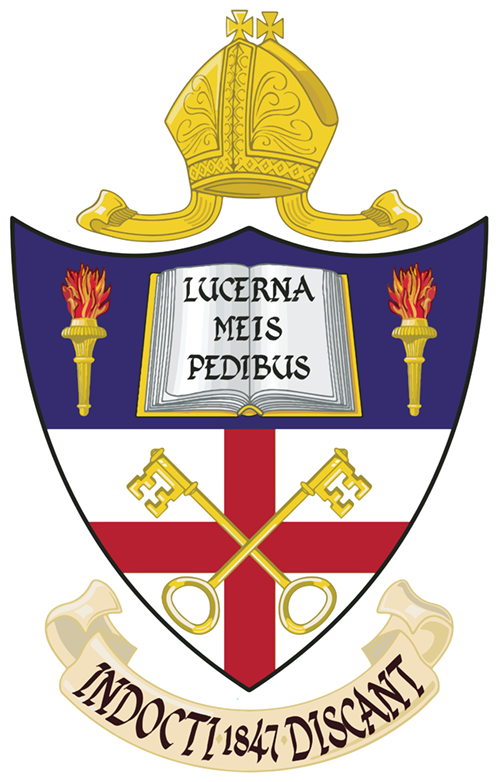
Established in 1847, Karachi Grammar School (KGS) is one of the oldest schools in South Asia and has remained one of the most respected names in Pakistani education. It offers education from the kindergarten level through to A-Levels and has consistently produced students who excel in both national and international examinations.
Admission is considered competitive, and the school’s alumni network includes many well-known figures in business, politics, and the arts.
Highlights of KGS
- The school follows the Cambridge curriculum at the secondary level, with a strong record of high grades in O-Levels and A-Levels.
- Students are encouraged to participate in music, drama, debating, and sports to complement academic development.
- The long-standing reputation of KGS reflects its consistent academic results and active role in developing leadership qualities.
Pros
- Strong Academic Record: KGS students regularly achieve high results in Cambridge O-Levels and A-Levels.
- Balanced Development: The school encourages debating, music, drama, and sports alongside academics.
- Long Heritage: Its history and alumni network make it one of the most prestigious schools in the country.
Cons
- Selective Admission: Entry is highly competitive, which limits accessibility for many families.
- High Cost: Fees are relatively higher compared to other private schools.
- Limited Reach: The school is located only in Karachi, making it inaccessible to families in other cities.
5. Lawrence College

Lawrence College, founded in 1860, is one of the oldest boarding schools in South Asia. Located in the Murree Hills at an elevation of nearly 2,000 meters, it provides a scenic and disciplined environment for boys. The college follows the British public school tradition and offers education from junior to senior levels, including O-Levels and intermediate board programs. With its 150-acre campus, emphasis on sports, and heritage spanning more than 160 years, it remains a respected name in Pakistan’s education sector.
Features
- The college provides education from junior school through to senior levels, offering both Cambridge and local board programs.
- Boarding facilities are central to the institution, with emphasis on community life and character building.
- Sports and outdoor activities are considered an important part of the curriculum, alongside academic studies.
Pros
- Historic Institution: With over 160 years of history, it is among the most established schools in South Asia.
- Boarding Experience: Residential facilities foster discipline, independence, and community values.
- Scenic Campus: The Murree Hills setting provides an environment conducive to study and outdoor activities.
Cons
- Limited Access: Being a boarding school in Murree, it is not easily accessible for families living in other regions.
- Traditional Approach: The emphasis on discipline may feel restrictive for some students.
- Smaller Curriculum Range: Fewer international options compared to urban schools offering IB and IFP programs.
6. Foundation Public School
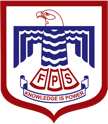
Founded in 1981, Foundation Public School (FPS) operates multiple campuses in Karachi, Hyderabad, and Islamabad. It offers education from preschool through O-Levels and A-Levels. The school follows a house system, encouraging inter-house competitions in sports and academics.
FPS places equal emphasis on classroom learning and co-curricular activities such as science exhibitions, debates, and cultural events. Its expansion beyond Karachi reflects its growing role in private education.
Academic and Co-Curricular Structure
- FPS offers education from preschool through to Cambridge O-Levels and A-Levels.
- The house system provides opportunities for students to take part in debates, science fairs, and inter-house sports competitions.
- The expansion into multiple cities reflects its steady growth and recognition as part of the top schools in Pakistan.
Pros
- Multiple Campuses: With campuses in Karachi, Hyderabad, and Islamabad, FPS is accessible in different cities.
- House System: Inter-house debates, sports, and science fairs encourage participation and teamwork.
- Balanced Learning: Equal emphasis is placed on academics and co-curricular development.
Cons
- Regional Presence: It is still a mid-sized network compared to Beaconhouse or The City School.
- Recognition Level: FPS is less well-known outside its main campuses.
- Limited Curriculum Options: While O-Levels and A-Levels are offered, advanced international programs like IB are not available.
7. Bay View Academy
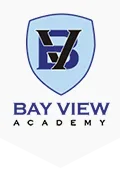
Bay View Academy, located in Karachi, has gained recognition as a progressive school offering Cambridge O-Level and A-Level programs. It provides education from early years through secondary school, focusing on smaller class sizes and individual student attention.
The school organizes regular extracurricular activities such as MUNs, science fairs, and performing arts. Though newer than some of the other names on this list, Bay View Academy is increasingly included in discussions of the top schools in Pakistan because of its consistent academic results and balanced student life.
Distinctive Aspects
- The school offers Cambridge O-Levels and A-Levels, with close academic support provided to students.
- Extracurricular life includes Model United Nations (MUNs), science fairs, and performing arts programs.
- Bay View has gained recognition in Karachi for consistent Cambridge examination outcomes and student participation in creative activities.
Pros
- Small Class Sizes: Teachers can provide individual attention due to fewer students per class.
- Active Extracurriculars: MUNs, science fairs, and arts programs provide students with creative and leadership opportunities.
- Good Examination Results: Students consistently perform well in Cambridge assessments.
Cons
- Limited Reach: The school operates only in Karachi.
- Smaller Scale: It does not have the same range of facilities or network as older institutions.
- Higher Costs: Fees can be higher relative to the scale of the school.
8. Froebel’s International School
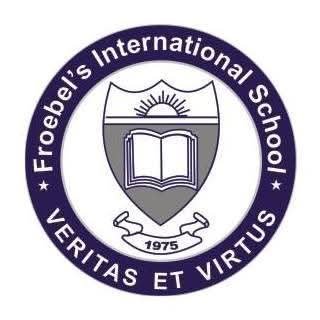
Froebel’s International School, with campuses in Islamabad and other cities, provides education from preschool through A-Levels. The school emphasizes inquiry-based learning in the early years and prepares students for Cambridge qualifications at higher levels.
Co-curricular activities are integral, with debating societies, cultural programs, and interschool competitions forming part of campus life. Its presence in major urban centers places it among the top schools in Islamabad as well as other cities.
Key Features
- The school provides education from preschool through to A-Levels, with a focus on Cambridge pathways.
- Inquiry-based learning is emphasized in the early years, encouraging problem solving and independent thinking.
- Students take part in debating societies, cultural activities, and interschool competitions as part of their broader development.
Pros
- Inquiry-Based Learning: The early years program encourages critical thinking and problem-solving.
- Multiple Campuses: Froebel’s has expanded to several cities, increasing its accessibility.
- Strong Extracurricular Culture: Debating, cultural programs, and interschool competitions enrich student life.
Cons
- High Fees: Tuition is on the higher side, especially in urban centers.
- Limited Legacy: Compared to schools like KGS or Lawrence College, Froebel’s has a shorter history.
- Competitive Admissions: Entry requirements may be challenging for some families.
9. Islamabad Convent School (ICS)
Islamabad Convent School has long been regarded as a reliable option among the top schools in Islamabad. It offers both SSC (Matriculation) and Cambridge O-Levels, providing families with flexibility in choosing an academic pathway.
Known for discipline and structured teaching methods, ICS maintains a balance of academics and extracurricular activities, including debating and sports. Its reputation is built on consistency rather than scale, making it a stable choice for parents in the capital.
What ICS Provides
- The school offers both SSC (Matriculation) and Cambridge O-Levels, giving families the option of local or international pathways.
- Discipline and academic structure are emphasized, with clear expectations for students.
- Extracurricular opportunities such as debating and sports are provided to complement academics.
Pros
- Dual Pathways: Families can choose between SSC and Cambridge O-Levels.
- Structured Environment: The school emphasizes discipline and academic focus.
- Stable Reputation: Its consistent performance has made it a reliable option in Islamabad.
Cons
- Limited Scale: ICS operates only in Islamabad.
- Conservative Approach: The structured model may not appeal to families seeking modern teaching styles.
- Fewer International Links: Unlike larger schools, ICS has fewer global partnerships.
10. The City School
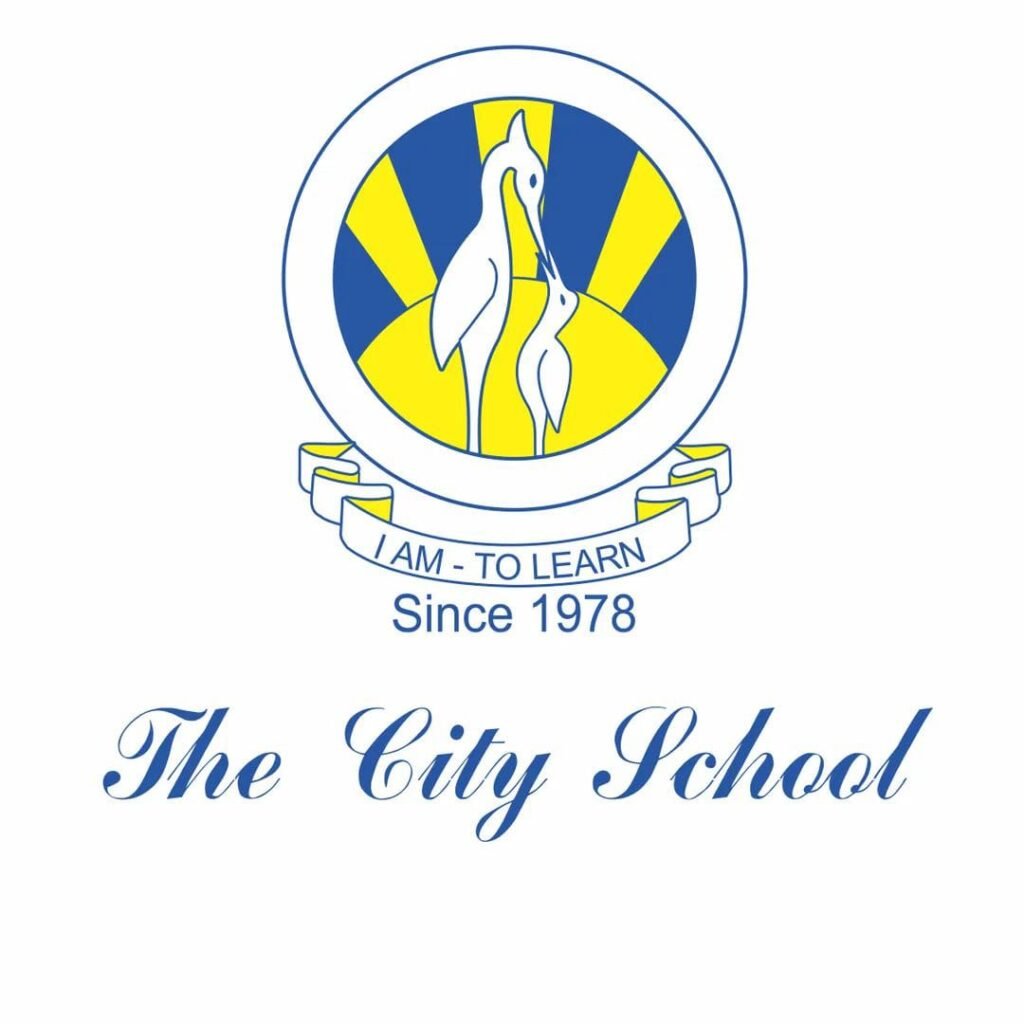
Established in 1978, The City School is one of the largest private school networks in Pakistan. It follows the UK’s National Curriculum and offers O-Levels and A-Levels across its campuses nationwide.
With a large student population, The City School combines academic learning with opportunities in arts, debating, and athletics. Its standardized approach across campuses ensures consistency in delivery, which is one reason it is frequently listed among the best schools in Pakistan.
Highlights
- The school offers education from early years through to A-Levels under a standardized framework.
- Students have opportunities in sports, debating, cultural programs, and arts alongside academics.
- The national reach of The City School makes it one of the most accessible and widely recognized names among the best schools in Pakistan.
Pros
- Extensive Network: With campuses in many cities, it is accessible to a large number of families.
- Standardized Curriculum: The academic model ensures consistency in learning across campuses.
- Balanced Development: Students participate in sports, debating, cultural programs, and arts in addition to academics.
Cons
- Variable Experiences: The size of the network means quality may vary between campuses.
- Large Student Body: Some families may feel individual attention is limited.
- High Fees: International streams are more expensive than local options.
Final Word
The Top 10 schools in Pakistan reflect a mix of historic boarding institutions and large private networks, as well as independent schools known for specific strengths. Some emphasize tradition and discipline, while others highlight scale and accessibility.
Some schools focus on inquiry-based learning, while others stand out for combining multiple academic tracks under one system. Together, these institutions illustrate the diversity of options available to families seeking quality education across Pakistan.






